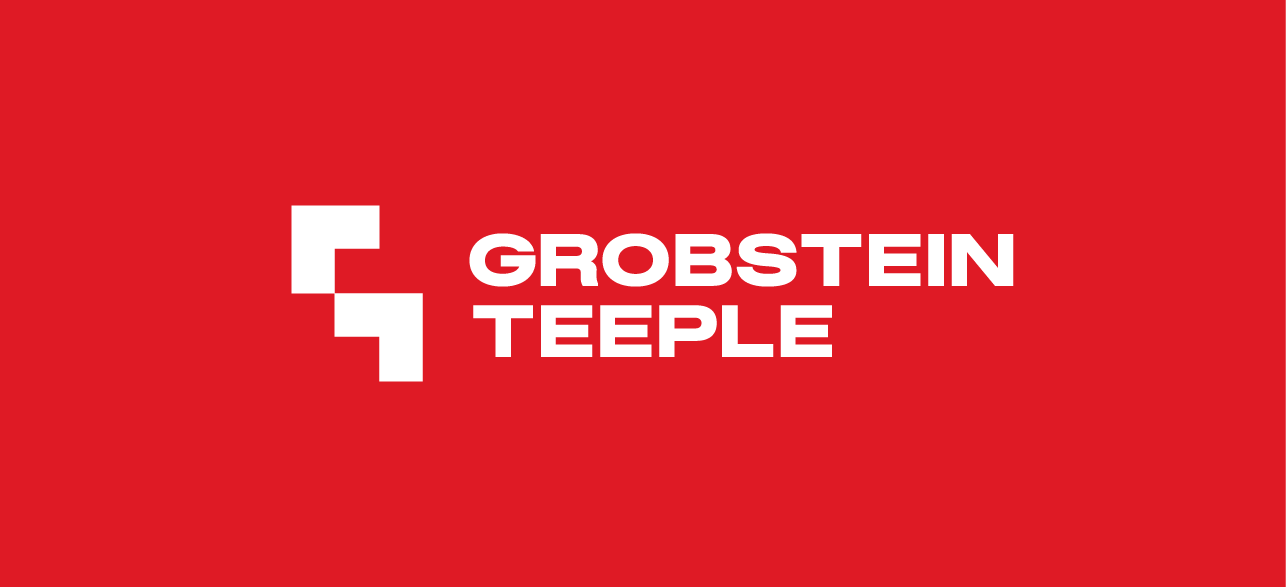

The 2025 tax legislation is here, and it’s time to get strategic.
President Trump’s latest tax reform, formally titled the 2025 Tax Relief and Economic Growth Act and commonly known as “The Big Beautiful Bill,” serves as a continuation and extension of the 2017 Tax Cuts and Jobs Act. The bill combines permanent tax cuts with new deductions, spending changes, and program rollbacks that will affect how you plan your finances for years to come.
What’s Actually in the Bill?
At its core, the bill retains tax benefits that have been in use since 2017 while introducing new opportunities. Major changes include permanent lower individual tax brackets, a fixed larger standard deduction, and 20% pass-through deduction for small businesses.
The bill also introduces targeted deductions for seniors, tips, overtime pay, and car loan interest. “Trump Accounts” have now been introduced for children born between 2025 and 2028 to help with education or a first home purchase.
On the spending side, it rolls back clean-energy incentives, cuts funding for Medicaid and SNAP, and increases spending on defence, border security, and rural hospitals, making it as much a broad policy package as a tax plan.
“The parts of the bill that will likely hit clients the hardest are the ones that change their everyday tax planning,” explains Silva Chamichyan, a tax partner at Grobstein Teeple. “For most clients, the biggest impacts will come from the lower tax brackets and larger standard deduction becoming permanent, giving individuals and families more certainty in their planning.”
For Business Owners: Stability and New Opportunities
Corporate Rates Stay Put
Good news for corporations: the 21% corporate tax rate from 2017 is now effectively permanent, removing major uncertainty that complicated business planning regarding rate jumps.
Pass-Through Entities Win Big
The 20% pass-through deduction for S-corporations, LLCs, and partnerships is now permanent. This means qualifying business owners can continue deducting 20% of their business income year after year, providing substantial ongoing tax savings.
For example, a business owner with a $500,000 S-corp profit can now count on saving approximately $20,000 annually through this deduction, assuming they qualify under the income and wage base limitations.
Enhanced Interest Deductions
A technical change that could have big impacts: the bill increases the cap on deductible business interest expense through changes to how adjusted taxable income (ATI) is calculated. Starting with tax years beginning after 2024, ATI is computed without taking into account deductions for depreciation, amortization, or depletion. This allows corporations to take higher interest expense deductions that would otherwise be limited.
Capital Investment Incentives Continue
The bill maintains favorable depreciation rules that encourage business investment. Businesses can still deduct 100% of the cost of qualifying equipment and certain property in the year it’s placed in service through bonus depreciation, and Section 179 expense limits remain high. The bill also keeps qualified improvement property eligible for accelerated depreciation.
“The bill keeps capital investment incentives strong, encouraging businesses to make equipment and property purchases sooner rather than later to lock in the biggest deductions,” Silva notes.
Need help optimizing your business structure or equipment purchase timing? Our tax and business advisory teams can help you maximize these opportunities.
For Individuals: More Deductions, More Planning Options
New Targeted Deductions
The bill introduces several new deductions that could benefit different types of workers and families:
- Tips and overtime pay: New deductions that will particularly help service industry workers
- Car loan interest: Provides relief for families financing vehicles
- Additional senior deduction: Extra tax breaks for older taxpayers beyond standard age-based increases
- Trump Accounts: Special accounts for children born between 2025 and 2028 that can be used for education or first home purchases
Estate Planning Gets Supercharged
For high-net-worth individuals, the changes to estate and gift taxes are significant. The exemption is permanently increased to $15 million per person, with annual adjustments for inflation. This effectively doubles the previous exemption amount, providing substantially more room for wealth transfer strategies without federal transfer taxes.
The generation-skipping transfer (GST) tax exemption also increases to $15 million, opening up new multigenerational planning opportunities.
QSBS Rules Change
The qualified small business stock (QSBS) gain exclusion rules are modified to provide a tiered gain exclusion for QSBS acquired after July 4, 2025. The new approach offers partial gain exclusion for shorter holding periods than the previous five-year requirement.
Practical Advice for Different Situations
For Middle-Class Families
Silva recommends that middle-class taxpayers review their withholdings and estimated tax payments to align with the new rates, deductions, and credits. Ensure you’re not overpaying or facing unexpected tax balances.
Families with children should adjust their planning to take full advantage of expanded child and dependent credits. Homeowners in high-tax states should reevaluate whether itemizing makes more sense now.
Retirement savers should consider increasing contributions to 401(k)s, IRAs, or HSAs to take advantage of enhanced incentives, especially if you’re over 50 and can make larger catch-up contributions.
For High-Net-Worth Individuals
Now is the time to revisit estate plans and gifting strategies in light of the $15 million per person exemption. While there’s less urgency than before 2026, there’s still significant value in making strategic transfers, setting up trusts, and ensuring spousal portability through proper estate tax filings.
The Planning Reality Check
“While many of the tax cuts and deductions feel permanent, nothing in the tax code is truly set in stone,” Silva reminds us. “In the future, Congress can change the rules at any time.”
The smart approach is to take advantage of current benefits while building financial flexibility for potential future changes. Some of the new deductions, such as those for tips, overtime, and car loan interest, are temporary and will expire after a few years unless renewed.
Economic Implications to Watch
Investment and Growth
The bill is likely to give U.S. investment a boost over the next few years. Lower taxes and larger deductions mean businesses have more money to invest in equipment, property, and hiring.
Inflation and Interest Rate Considerations
More money moving through the economy can put pressure on prices, but the economic picture remains complex. While increased demand could push inflation higher, recent economic indicators suggest the Federal Reserve faces competing pressures when setting interest rate policy.
For anyone considering major financial decisions like home purchases, refinancing, or business loans, it’s worth noting that rate movements could go in either direction. Given this uncertainty, it may be wise to evaluate both fixed and variable rate options based on your specific situation and risk tolerance.
What to Do Now
Immediate Steps:
- Review your withholdings and estimated payments for 2025
- Evaluate whether new deductions (tips, overtime, car loan interest) apply to your situation
- Consider the timing of major business equipment purchases to maximize depreciation benefits
- Review retirement contribution strategies
For Business Owners:
- Assess whether your business structure optimizes the permanent pass-through deduction
- Review debt financing strategies given enhanced interest deduction rules
- Plan equipment purchases to take advantage of continued bonus depreciation
For High-Net-Worth Individuals:
- Update estate planning documents to reflect the $15 million exemption
- Consider gifting and trust strategies with the increased capacity
- Review QSBS positions and exit timing strategies
The Bottom Line
“The bill gives a window of lower taxes, but it won’t last forever, so the smart move is to take advantage now without getting caught off guard later,” Silva explains. “Run the numbers a few years out, plan for what happens if taxes climb again, and keep enough cash on hand so a future tax hike doesn’t throw you off balance.”
The complexity of these changes means one-size-fits-all advice doesn’t work. Your optimal strategy depends on your income level, business structure, family situation, and long-term financial goals.
Ready to turn these tax changes into a strategic advantage?
Our team specializes in helping businesses and individuals navigate complex tax legislation and develop practical strategies that make sense for their unique situations.
Contact us to discuss how the Big Beautiful Bill impacts your specific circumstances and what steps you should take now. Still have questions? We’re here to help.
 Recent Insights
Recent Insights
-
 Why Timing Matters: Turning Complex Financial Disputes Into Winning Cases (with a Litigation Expert Witness)Business Strategy17 Sep 2025
Why Timing Matters: Turning Complex Financial Disputes Into Winning Cases (with a Litigation Expert Witness)Business Strategy17 Sep 20255 minute read
Your case has strong merits. But can you prove the damages? You need a litigation expert witness. Complex business disputes often hinge on one c...
-
 Why Independent Fiduciaries Are ImportantBusiness Strategy Advisory22 Jul 2025
Why Independent Fiduciaries Are ImportantBusiness Strategy Advisory22 Jul 20253 minute read
When conflicts of interest cloud judgment and emotions run high, someone needs to step in with complete objectivity. That's where independent fiduc...
-
 Grobstein Teeple LLP Joins the Prestigious Alliott Global Alliance and Expands Global CapabilitiesCompany News General Business1 Jul 2025
Grobstein Teeple LLP Joins the Prestigious Alliott Global Alliance and Expands Global CapabilitiesCompany News General Business1 Jul 20253 minute read
Los Angeles firm, Gropstein Teeple LLP, gains international reach through admission into prestigious professional services network, Alliott Global ...
-
 How the Right Audit Preparation Can Save Your Firm Time and MoneyBusiness Tax General Business24 Apr 2025
How the Right Audit Preparation Can Save Your Firm Time and MoneyBusiness Tax General Business24 Apr 20255 minute read
A financial statement audit can be a costly and time-consuming process, which is why seeking expert advice on audit preparation is essential to eas...
-
 Withstanding the Unexpected: How a Red File Can Help You Bounce BackPersonal Finance Advisory30 May 2025
Withstanding the Unexpected: How a Red File Can Help You Bounce BackPersonal Finance Advisory30 May 20255 minute read
One of the few certainties in life is that it can be unpredictable. That’s why a Red File is so important—because it can help you recover quickly f...
-
 How Will President Trump’s IRS Hiring Freeze Affect Tax Season?Uncategorized4 Mar 2025
How Will President Trump’s IRS Hiring Freeze Affect Tax Season?Uncategorized4 Mar 20253 minute read
While there was an expectation of some unpredictability from President Trump’s second term in office, a number of new executive orders are causing ...
-
 Trump and 2025 Tax Brackets: Here’s What We’re Advising our Clients to Watch Out ForTax & Compliance Industry Updates9 Jan 2025
Trump and 2025 Tax Brackets: Here’s What We’re Advising our Clients to Watch Out ForTax & Compliance Industry Updates9 Jan 20255 minute read
Many of our clients have asked us what will change—including whether there will be any changes to 2025 tax brackets—once president-elect Donald Tru...
-
 The Corporate Transparency Act Is on Hold— But That May Be TemporaryBusiness Tax Industry Updates12 Dec 2024
The Corporate Transparency Act Is on Hold— But That May Be TemporaryBusiness Tax Industry Updates12 Dec 20243 minute read
Beneficial Ownership Information, or BOI reports, are now voluntary until further notice. However, Grobstein Teeple still recommends clients gather...
-
 When It Comes to Home Cybersecurity, You Can’t Afford to Overlook Your SetupCybersecurity Cybersecurity24 Oct 2024
When It Comes to Home Cybersecurity, You Can’t Afford to Overlook Your SetupCybersecurity Cybersecurity24 Oct 20246 minute read
Working remotely? Don’t forget the crucial role your home cybersecurity setup plays in keeping your personal information safe and secure. We’ve ...
-
 Ever Wondered How to Calculate Business Valuation? Start by Talking to an ExpertBusiness Tax Advisory3 Oct 2024
Ever Wondered How to Calculate Business Valuation? Start by Talking to an ExpertBusiness Tax Advisory3 Oct 20245 minute read
Do you know how to calculate business valuation accurately when there are competing interests involved? It’s a question Grobstein Teeple’s business...
-
 Need Forensic Accounting? You’ve Come to the Right PlaceAccounting Service Protection11 Sep 2024
Need Forensic Accounting? You’ve Come to the Right PlaceAccounting Service Protection11 Sep 20246 minute read
Forensic accounting might not be the most traditional of services that come to mind when you think of accounting, but it’s a field Grobstein Teeple...
-
 What Is Bankruptcy and Insolvency? You’ll Want an Expert to Answer ThatWealth Planning General Business14 Jul 2024
What Is Bankruptcy and Insolvency? You’ll Want an Expert to Answer ThatWealth Planning General Business14 Jul 20245 minute read
It’s not a topic any business owner ever wants to face, but failure to consult a bankruptcy and insolvency expert can cost you even more in the lon...
-
 We Do More Than Just Tax Planning and ComplianceAccounting Service Advisory21 May 2024
We Do More Than Just Tax Planning and ComplianceAccounting Service Advisory21 May 20246 minute read
While the month of May often brings a sigh of relief for individuals who’ve just filed their income tax returns, Grobstein Teeple does more than ju...
-
 Building a Successful Business? Don’t Forget About AccountingBusiness Strategy General Business17 Apr 2024
Building a Successful Business? Don’t Forget About AccountingBusiness Strategy General Business17 Apr 20242 minute read
When it comes to building a successful business, it’s key to get your accounting right. That’s the verdict from our Principal, Dimple Mehra, who...
-
 It’s ‘Go Time’ Once Again at the California Bankruptcy ForumAccounting Service Advisory5 Apr 2024
It’s ‘Go Time’ Once Again at the California Bankruptcy ForumAccounting Service Advisory5 Apr 20246 minute read
The California Bankruptcy Forum is hosting its 36th annual insolvency conference in May and Grobstein Teeple will again be an active participant. ...
-
 Have You Ever Wondered Why Business Valuation Is So Important?Business Strategy Advisory7 Mar 2024
Have You Ever Wondered Why Business Valuation Is So Important?Business Strategy Advisory7 Mar 20244 minute read
Why is business valuation important? Grobstein Teeple’s experienced business valuation experts, Kurt Stake and Will Thomsen, have the answers. W...
-
 Howard Grobstein Named One of LA’s Top 100 AccountantsCompany News Company news9 Nov 2023
Howard Grobstein Named One of LA’s Top 100 AccountantsCompany News Company news9 Nov 20235 minute read
Howard Grobstein didn’t co-found Grobstein Teeple with the express purpose of being named one of LA's Top 100 Accountants, but it’s an accolade tha...
-
 The Four Best Practices of Staying Safe OnlineBusiness Strategy Cybersecurity23 Oct 2023
The Four Best Practices of Staying Safe OnlineBusiness Strategy Cybersecurity23 Oct 20237 minute read
October marks Cybersecurity Awareness Month each year—the joint initiative between the U.S. Department of Homeland Security and National Cybersecur...
-
 Why Cybersecurity is More Important Than EverBusiness Strategy Cybersecurity13 Oct 2023
Why Cybersecurity is More Important Than EverBusiness Strategy Cybersecurity13 Oct 20238 minute read
“Certain kinds of cybercrime that were considered avant garde or cutting edge in 2004 or 2005 are now daily occurrences.” That’s the verdict of...
-
 October Is Cybersecurity Awareness MonthPodcast Cybersecurity29 Sep 2023
October Is Cybersecurity Awareness MonthPodcast Cybersecurity29 Sep 20231 minute read
It's Cybersecurity Awareness Month and here at Grobstein Teeple, we’re thrilled to play our part. Our Global Head of Cybersecurity and Risk Mana...
-
 Postponed California Tax DeadlinesPersonal Tax9 Mar 2023
Postponed California Tax DeadlinesPersonal Tax9 Mar 20233 minute read
Postponed deadlines for disaster-affected taxpayers in California. The Internal Revenue Service has announced that the postponement of various t...
-
 Time for business evolutionCompany News16 Mar 2023
Time for business evolutionCompany News16 Mar 20233 minute read
Brand History We grew from a desire to combine the expertise provided by a larger firm with a leaner, more flexible approach that puts our c...






















